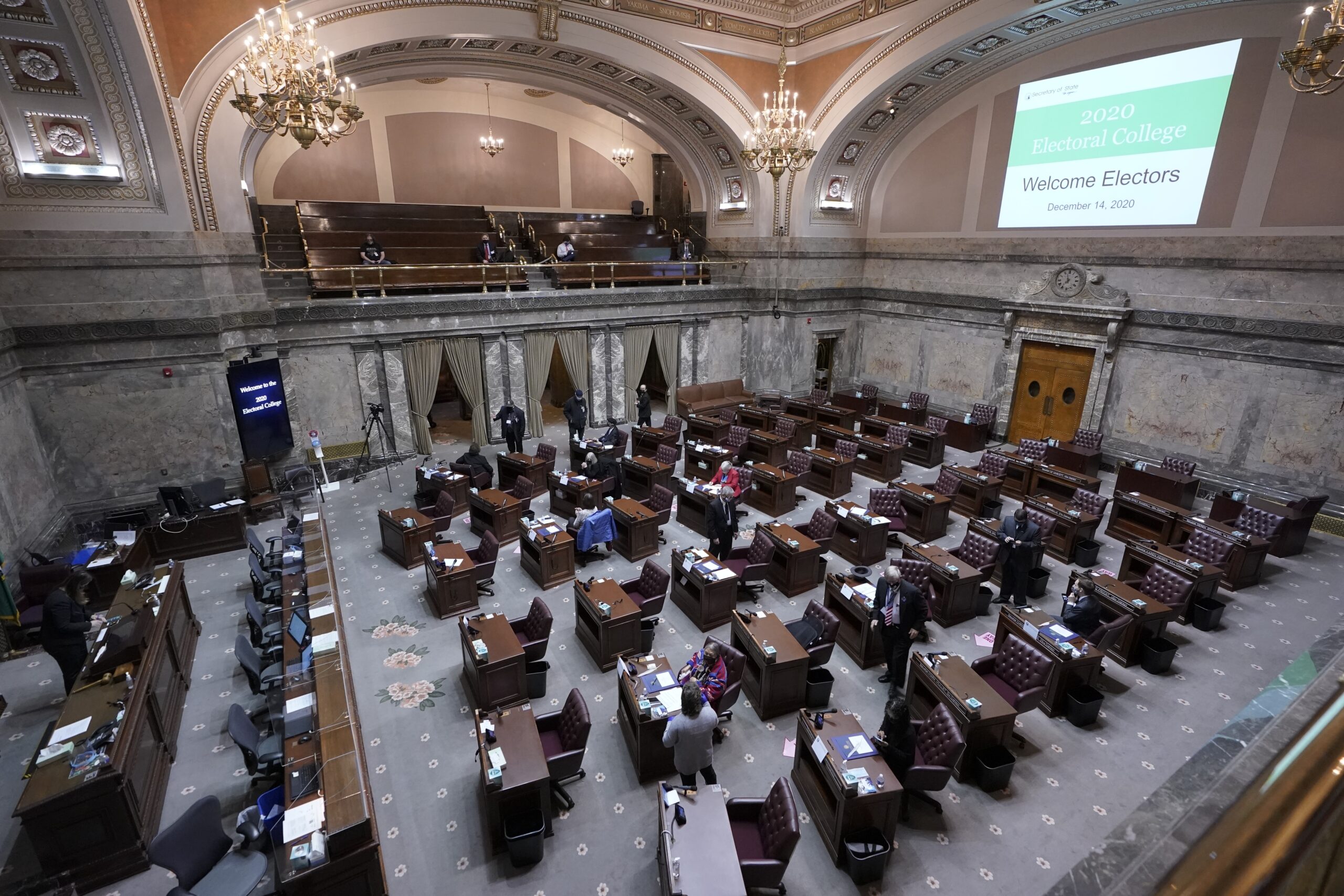Whatever you think of its outcome, the
2020 election
was a mess.
State responses to
COVID-19
involved significant changes to the normal voting process. Partisan intensity contributed to distrust and accusation from both sides — with Democrats claiming voter suppression and Republicans claiming voter fraud. This atmosphere culminated in
the sad events of Jan. 6,
wherein supporters of President Donald Trump forcibly entered the Capitol, seeking either to postpone the certification of Joe Biden as president and/or to change the electoral vote count to reelect Trump.
One contributor to the problems was the Electoral Count Act of 1887, a relic created in the wake of another disputed election: the presidential contest of 1876. There, the outcome in several states was vigorously disputed, with states submitting competing slates of electors. The country quickly discovered our laws had no clear system established for adjudicating this question. Eventually, a 15-member commission was established. On a party-line 8-7 vote, it awarded the contentious electors to Republican Rutherford B. Hayes over Democratic Samuel Tilden.
Congress later passed the Electoral Count Act to provide rules for completing the certification of presidential electors. The act, however, was poorly written. While establishing some helpful criteria for processing election results, it also created ambiguity where it needed to provide clarity.
A bill is now afoot to address those problems and try to avoid the confusion that the Electoral Count Act contributed to in 2020. Sens. Susan Collins (R-ME) and Joe Manchin (D-WV) have headed up the effort to reform the act. Their proposal deserves, in some form, to pass into law before the
2024 presidential election.
The bill specifies who from each state will submit its slate of presidential electors. Either the governor will do so or another state officer if so designated by state law before Election Day. The bill also would require Congress generally to defer to the slate thus submitted by the state. This measure greatly reduces the risk of competing slates of electors each claiming legitimacy. The bill also clarifies the vice president’s role in Congress’s certification of the election, specifying that in presiding over Congress’s joint meeting to count the electoral votes, the vice president acts only in a “ministerial” fashion. This move accords with what the Constitution envisioned. It also saves us from the prospect of Vice President Kamala Harris sitting in self-interested judgment over her own candidacy in 2024.
Moreover, the bill would modify the rules for members of Congress raising objections to the states’ slates. Now, only one member from each chamber would be needed to stall the vote count and put the election on the path to congressional decision. The current rationale for objecting to the submitted results is vague and broad. The new reform would require 20% of each chamber to object and give clearer criteria for acceptable reasons for objecting. These provisions help limit the power of a few legislators to use the process to gain media attention and enhance future electoral ambitions.
Finally, the bill gives an expedited procedure for candidates to challenge state certification of electors in federal court. The measure would not change any of the federal laws on which the candidates could sue. But it would give a clear process, one with the ability to be resolved fairly quickly, of any legal claims.
This proposed reform isn’t a silver bullet. We should continue to debate what other measures may be needed to address Democratic worries about voter suppression and Republican ones regarding voter fraud. Yet people of all political stripes should support this measure, as it is critically needed to keep the confusion and disputes in future elections to a minimum.
Adam Carrington is an associate professor of politics at Hillsdale College.






